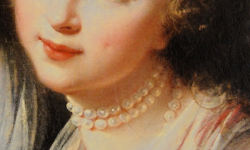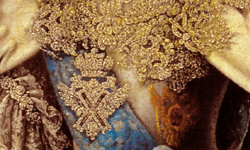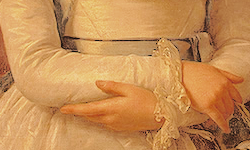historyofromanovs:The Catherinian Era: Russia’s Golden AgeThe period of Catherine the Great’s rule,
historyofromanovs:The Catherinian Era: Russia’s Golden AgeThe period of Catherine the Great’s rule, the Catherinian Era, is often considered the Golden Age of the Russian Empire and the Russian nobility. Construction of many mansions of the nobility, in the classical style endorsed by the Empress, changed the face of the country. This era spans from the years 1762-1796, the thirty-four years of Catherine’s reign. When she took the throne in 1762, Catherine was determined to change the perception of Russia throughout Europe as a culturally lacking empire. Russia was revitalized under her reign, growing larger and stronger than ever and becoming recognized as one of the great powers of Europe. The upper classes’ increased purchasing power caused them to see themselves as equals to the French, British, Swiss, Danish and Swedes.Catherine had a reputation as a patron of the arts, literature, and education. The Hermitage Museum, which now occupies the whole Winter Palace, began as Catherine’s personal collection. A notable example of an enlightened despot, a correspondent of Voltaire and an amateur opera librettist, Catherine presided over the age of the Russian Enlightenment, when the Smolny Institute, the first state-financed higher education institution for women in Europe, was established. Girls studied not only “dance, music, sewing drawing, and household economy” but also “law, mathematics, languages, geography, history, economy, architecture, science, and ethics.”Catherine held western European philosophies and culture close to her heart, and she wanted to surround herself with like-minded people within Russia. She believed a ‘new kind of person’ could be created by inoculating Russian children with European education. Catherine believed education could change the hearts and minds of the Russian people and turn them away from backwardness. This meant developing individuals both intellectually and morally, providing them knowledge and skills, and fostering a sense of civic responsibility. By 1796, when Emperor Paul succeeded his mother on the Russian throne, the Russian Enlightenment was very much on the wane. The Victorian Era: The Beginning of the Modern TimesThe Edwardian Era: A Decade of Elegance -- source link
Tumblr Blog : historyofromanovs.tumblr.com
#history#russian history#18th century#queens







